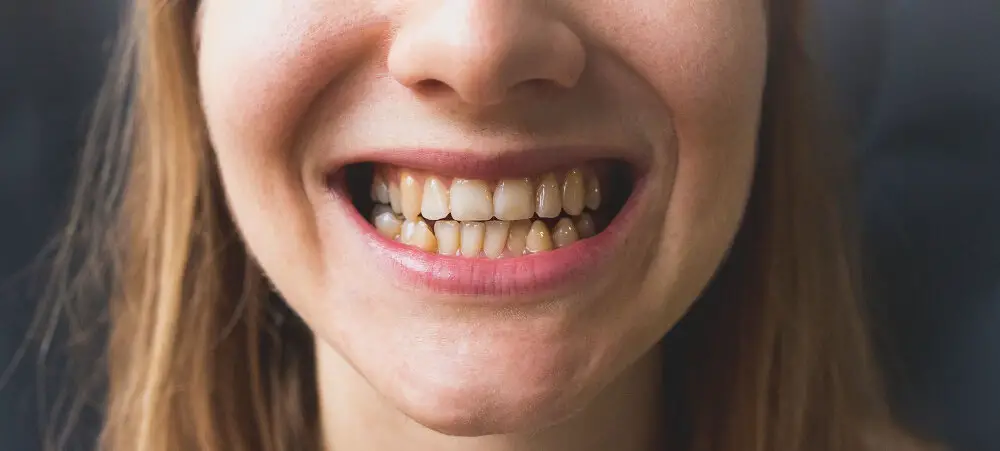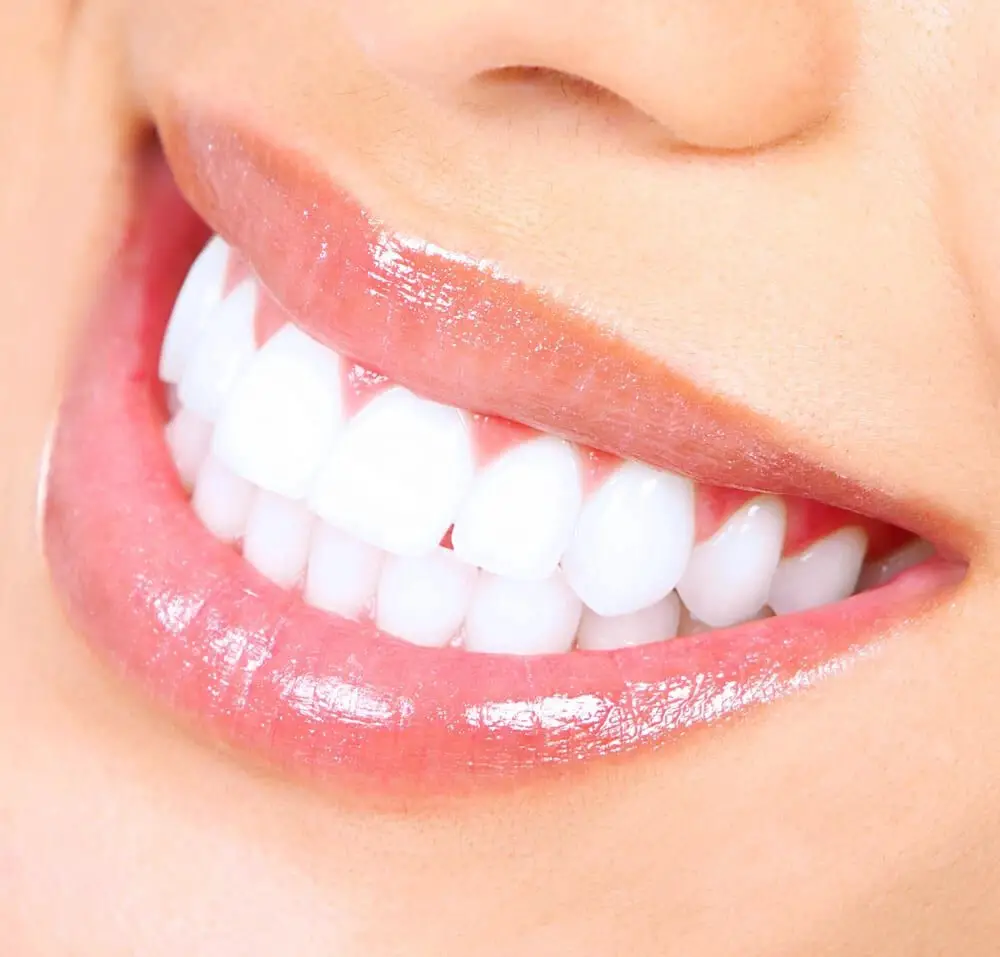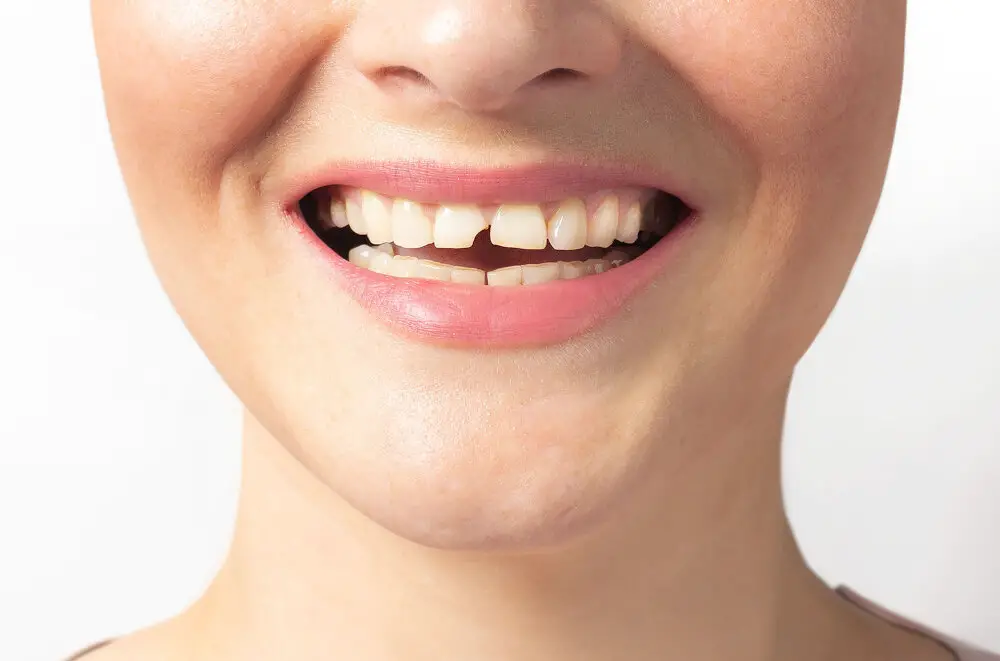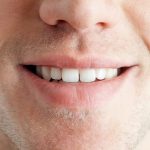Why Dogs Nibble: Understanding the Reasons Behind Front Teeth Chewing

Dogs have been man’s best friend for centuries, and they continue to be one of the most beloved pets in the world. While dogs are typically known for their playful personalities and loyal nature, they also have some behaviors that can leave their owners puzzled. One of these behaviors is nibbling, particularly with their front teeth. This habit can often be seen as destructive, but it’s essential to understand why dogs do it and how to handle it. Understanding why dogs nibble with their front teeth is crucial in ensuring their overall well-being and happiness. While it may seem like a harmless habit, it can lead to dental problems, anxiety, and even aggression in some cases. By understanding the reasons behind this behavior, pet owners can take the necessary steps to prevent it from happening and provide their furry friends with the best care possible. In this article, we will explore the reasons why dogs nibble with their front teeth and provide tips on how to manage this behavior effectively.
Nibbling is a common behavior among dogs that involves the gentle chewing of objects or body parts using their front teeth. This behavior is often seen in puppies as a way to explore and interact with their environment, but it can also be observed in adult dogs. There are various reasons why dogs nibble, including as a form of play, to relieve anxiety or stress, to groom themselves or others, or to seek attention or affection from their owners. While nibbling is usually harmless, it is important for dog owners to monitor their pets’ behavior and seek professional help if they notice any signs of aggression or excessive chewing. Understanding the reasons behind this behavior can help owners develop effective strategies to manage and modify it as necessary.
Understanding dog behavior is crucial for any dog owner. It helps in building a strong bond with the pet and also ensures their safety. Knowing why dogs nibble on things, especially with their front teeth, can prevent destructive behavior and potential health risks. For instance, if a dog is nibbling on objects due to anxiety or boredom, providing them with mental stimulation or exercise can help alleviate the behavior. However, if the nibbling is due to dental problems, seeking veterinary care is necessary. By understanding the reasons behind a dog’s behavior, owners can provide appropriate care and ensure a happy and healthy life for their furry friends.
Developmental Stage

Understanding the developmental stage of a dog is crucial in explaining their nibbling behavior. Puppies, for instance, go through a teething stage, which is characterized by the shedding of their milk teeth and the emergence of permanent teeth. During this time, they experience discomfort, and nibbling on objects helps soothe their sore gums. In addition, puppies are naturally curious, and nibbling allows them to explore their environment and learn about their surroundings. As they grow older, puppies will gradually outgrow this behavior, and with proper training, they can learn to differentiate between acceptable and unacceptable nibbling behavior. Adult dogs may also nibble for several reasons, including anxiety, boredom, and playfulness. Dogs that experience anxiety may resort to nibbling as a way to cope with their stress. In such cases, it is essential to address the underlying cause of the anxiety to curb the nibbling behavior. Boredom may also trigger nibbling, particularly for dogs that are left alone for extended periods. Providing adequate mental and physical stimulation can help alleviate this behavior. Finally, dogs may nibble as part of their play behavior, and it is essential to teach them appropriate nibbling behavior to avoid accidents and injuries. Understanding the developmental stage of a dog, therefore, plays a critical role in addressing and managing their nibbling behavior.
Puppies nibble more than adult dogs due to their natural instinct to explore the world through their mouth. As puppies grow up, they learn to use other senses to explore their environment, but their teeth are still a primary tool. Additionally, puppies are teething and experiencing discomfort as their adult teeth grow in, making them more likely to chew on objects to relieve the pain. Nibbling also serves as a way for puppies to bond with their littermates and learn social skills, such as bite inhibition. Adult dogs, on the other hand, have learned appropriate behaviors and have a more refined sense of what is acceptable to chew on. However, some adult dogs may still nibble as a form of play or to release pent-up energy.
Socialization during puppyhood is crucial for a dog’s overall development and behavior. It is during this time that puppies learn to interact with other dogs, people, and various environments. Proper socialization helps to prevent behavioral issues such as fear, aggression, and anxiety later in life. Puppies who are not socialized may become fearful or aggressive towards people and other animals, leading to dangerous situations. Socialization also helps puppies to learn how to communicate with other dogs, improving their ability to play and bond with other dogs in the future. Therefore, it is essential for puppy owners to expose their dogs to a variety of experiences, people, and places during their early months to ensure a well-balanced and happy dog.
Teething

Teething is a natural process that occurs in puppies as they develop their adult teeth. During this time, the puppy’s baby teeth start to fall out, making way for their permanent teeth. This process can be uncomfortable for the puppy, and they may chew on things to help alleviate the discomfort. It is important to provide your puppy with appropriate chew toys during this time to prevent them from chewing on items that could be harmful or dangerous. Some common signs of teething in puppies include drooling, chewing, and irritability. It is essential to be patient during this time and provide your puppy with plenty of love and attention to help them through this phase. One of the best ways to help your puppy through the teething process is by providing them with appropriate chew toys. Chew toys help to alleviate the discomfort associated with teething and also help to keep your puppy entertained. There are many different types of chew toys available, including rubber toys, rope toys, and stuffed toys. It is important to choose a chew toy that is appropriate for your puppy’s size and breed. You should also monitor your puppy while they are chewing to ensure that they are not chewing on anything that could be harmful or dangerous. With patience and the right chew toys, you can help your puppy through the teething process and ensure that they grow up with strong and healthy teeth.
Teething is a natural and necessary process that puppies go through as they grow and develop. During this time, the puppy’s baby teeth fall out and are replaced by adult teeth. This process can cause discomfort and pain in the puppy’s gums, leading to increased nibbling behavior. The puppy may chew on objects to relieve the discomfort and to help the new teeth emerge. Additionally, the puppy may chew on objects as a way to explore and learn about their environment. As the puppy grows and the teething process ends, the nibbling behavior should decrease. However, it is important to provide appropriate chew toys and training to prevent unwanted chewing in adult dogs.
Teething is a normal process that puppies go through, but it can be a challenging time for both puppies and their owners. To manage teething behavior, there are a few things you can do. Firstly, provide your puppy with plenty of chew toys to redirect their chewing and alleviate discomfort. Secondly, discourage inappropriate chewing by supervising your puppy and redirecting their attention when necessary. Thirdly, avoid using physical punishment, as it can lead to fear and anxiety in your puppy. Lastly, be patient and consistent with your training, and remember that teething is a temporary phase that will eventually pass.
Boredom and Anxiety

Boredom and anxiety are two common reasons why dogs nibble on objects, especially their front teeth. Dogs are intelligent animals that require mental stimulation to prevent boredom. When dogs become bored, they may chew on objects as a way to entertain themselves. This behavior can be destructive and may lead to damage to furniture, shoes, and other household items. Providing dogs with appropriate toys and activities can help prevent them from becoming bored and chewing on inappropriate objects. Anxiety is another reason why dogs may nibble on objects. Anxiety can be caused by a variety of factors, including separation anxiety, fear, and stress. When dogs are anxious, they may turn to chewing as a way to cope with their feelings. This behavior can be harmful to the dog’s health and can lead to dental problems if the dog chews on hard objects. It is important to identify the cause of the dog’s anxiety and address it through training, behavior modification, and medication if necessary. Providing dogs with a safe and comfortable environment can also help reduce anxiety and prevent destructive chewing behaviors.
Boredom and anxiety are two common reasons why dogs may engage in nibbling behavior. When a dog is bored, they may seek out objects to chew on as a means of stimulation and entertainment. In contrast, anxiety can cause a dog to engage in nibbling behavior as a way to soothe themselves and alleviate stress. Additionally, dogs may also nibble on objects as a means of exploring their environment and satisfying their natural urge to chew. This behavior can be problematic if it leads to destructive chewing on household items or if the objects being nibbled on are potentially harmful to the dog.
Preventing boredom and anxiety in dogs is crucial for their overall well-being. To accomplish this, pet owners must provide mental and physical stimulation to their furry friends. Engaging in activities such as going for walks, playing fetch, and training sessions can help alleviate boredom and anxiety. Additionally, providing puzzle toys, interactive games, and rotating toys can keep dogs entertained and mentally stimulated. Ensuring that dogs have enough social interaction with other animals and people is also essential. A balanced diet and proper exercise regime can help prevent destructive behavior caused by boredom and anxiety. With the right care and attention, pet owners can reduce their dog’s anxiety and provide them with a happy and healthy life.
Attention Seeking

Attention-seeking is a common behavior seen in dogs, especially when they feel neglected or bored. This is often seen in puppies who have just been separated from their mothers or are adjusting to a new environment. Dogs may resort to nibbling or chewing on things to grab their owner’s attention and spend time with them. This behavior can also be seen in older dogs who are not getting enough attention or exercise. They may resort to destructive behavior to get their owner’s attention and spend time with them. To prevent attention-seeking behavior, it is important to provide your dog with enough exercise and mental stimulation. This can include taking your dog for walks, playing games with them, or giving them interactive toys to play with. It is also important to establish a routine and stick to it. This will help your dog understand when it is time to play, eat, and rest. If your dog does resort to attention-seeking behavior, it is important to ignore them until they stop. This will help them understand that this behavior will not get them the attention they crave.
Dogs have a variety of ways to communicate with their owners, and one of the ways they do so is through nibbling. When a dog nibbles on their owner’s hand, arm, or clothing, it can be a way for them to seek attention and initiate playtime. It’s important to note that nibbling is different from biting or aggressive behavior, as it’s typically gentle and non-threatening. Nibbling can also be a sign of affection, as dogs may associate the act with positive reinforcement and attention from their owners. However, it’s important for owners to establish boundaries and discourage excessive nibbling, as it can become a nuisance or even painful over time.
Providing appropriate attention to dogs is crucial to their well-being and happiness. To start, ensuring your dog receives regular exercise and playtime is essential to their physical and mental health. Additionally, establishing a routine for feeding, walking, and training can help provide structure and stability for your furry friend. It’s also important to give your dog plenty of affection and attention through cuddles, belly rubs, and verbal praise. Finally, monitoring your dog’s behavior and addressing any concerning habits, such as nibbling or chewing, can help prevent potential health issues and keep your pup happy and healthy. By providing appropriate attention and care, you can strengthen the bond between you and your dog and create a happy and fulfilling life for your furry friend.
Dogs nibble for a variety of reasons, and it’s important to understand what’s driving this behavior to ensure your furry friend is feeling happy and healthy. One common reason for nibbling is teething, as puppies may chew on objects to relieve discomfort as their adult teeth come in. Nibbling can also be a sign of anxiety, boredom, or stress, as dogs may turn to chewing as a coping mechanism. Additionally, some dogs may nibble as a form of play or to show affection, while others may do so out of habit or as a way to explore their surroundings. By identifying the underlying cause of your dog’s nibbling behavior, you can take steps to address it and ensure your pet is thriving both physically and emotionally.
Addressing the root cause of nibbling behavior is crucial for both the dog’s well-being and the owner’s peace of mind. Nibbling or front teeth chewing can be a sign of various underlying issues, including boredom, anxiety, teething, or dental problems. Ignoring the behavior can lead to further complications, such as destructive behavior, aggression, or oral health issues. Therefore, it is essential to identify the root cause and provide appropriate solutions, such as interactive toys, training, dental care, or medication. Addressing the cause of nibbling behavior not only improves the dog’s quality of life but also strengthens the bond between the dog and the owner.
If you notice that your dog is nibbling excessively or in a way that seems unusual, it’s important to seek professional help from a veterinarian or animal behaviorist. While nibbling can be a normal behavior for dogs, it can also indicate underlying health or behavioral issues that require attention. Ignoring the problem can lead to more serious consequences for your furry friend, such as dental problems or anxiety. Seeking professional help will not only address the issue at hand but also provide you with the knowledge and tools to prevent similar problems in the future. So, don’t hesitate to reach out for help if you’re concerned about your dog’s nibbling behavior.
Conclusion

In conclusion, understanding why dogs nibble with their front teeth is crucial for any dog owner. This behavior can be caused by a variety of factors, including teething, boredom, anxiety, and even hunger. By identifying the root cause of your dog’s nibbling behavior, you can take the necessary steps to address it and prevent any potential damage to your furniture or belongings. Providing your furry friend with appropriate chew toys, regular exercise, and mental stimulation can help alleviate their urge to nibble and keep them happy and healthy. Remember, a well-trained and contented dog is a happy addition to any family, and understanding their behavior is the first step towards achieving that goal.






